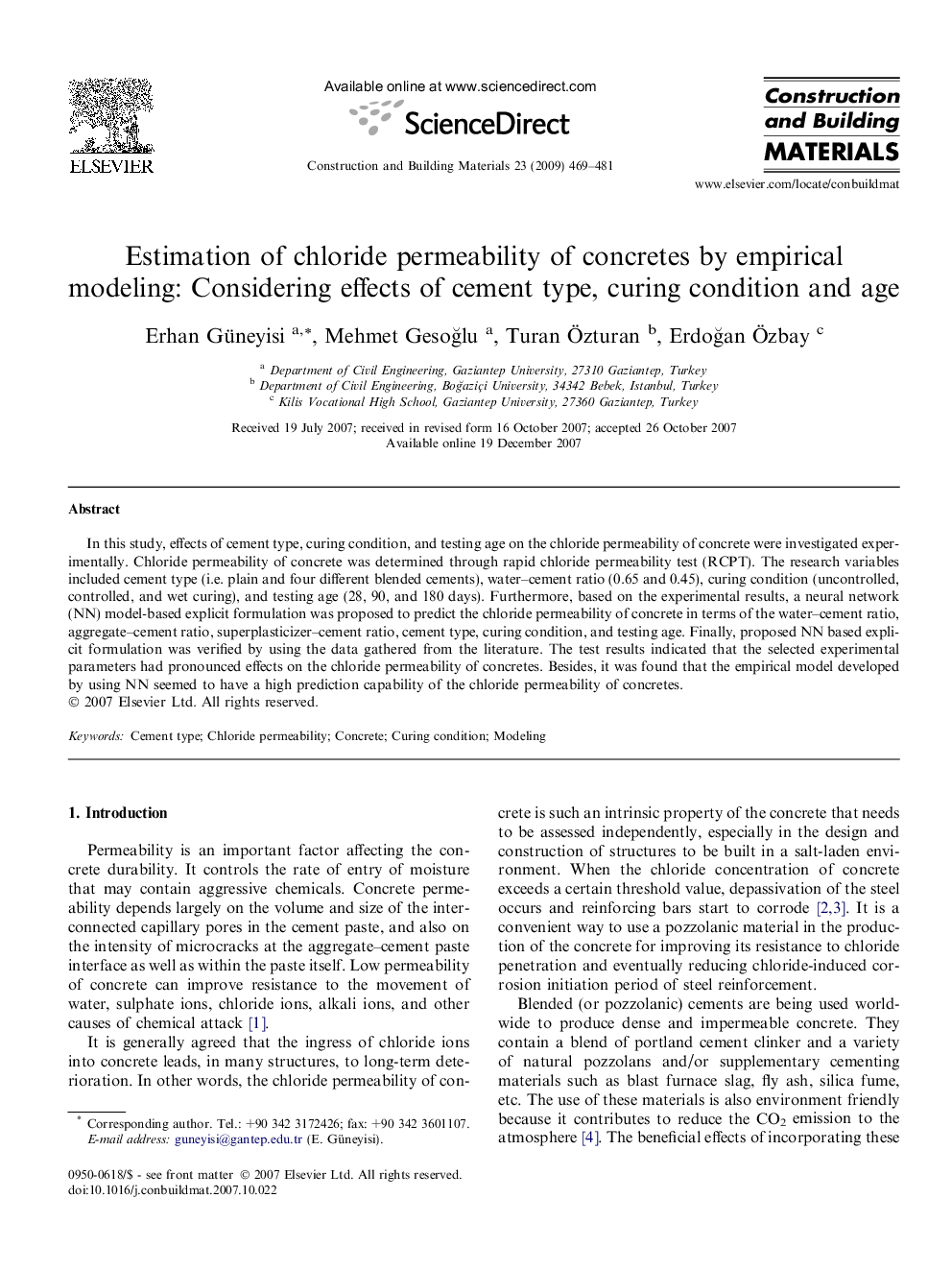| Article ID | Journal | Published Year | Pages | File Type |
|---|---|---|---|---|
| 260693 | Construction and Building Materials | 2009 | 13 Pages |
In this study, effects of cement type, curing condition, and testing age on the chloride permeability of concrete were investigated experimentally. Chloride permeability of concrete was determined through rapid chloride permeability test (RCPT). The research variables included cement type (i.e. plain and four different blended cements), water–cement ratio (0.65 and 0.45), curing condition (uncontrolled, controlled, and wet curing), and testing age (28, 90, and 180 days). Furthermore, based on the experimental results, a neural network (NN) model-based explicit formulation was proposed to predict the chloride permeability of concrete in terms of the water–cement ratio, aggregate–cement ratio, superplasticizer–cement ratio, cement type, curing condition, and testing age. Finally, proposed NN based explicit formulation was verified by using the data gathered from the literature. The test results indicated that the selected experimental parameters had pronounced effects on the chloride permeability of concretes. Besides, it was found that the empirical model developed by using NN seemed to have a high prediction capability of the chloride permeability of concretes.
